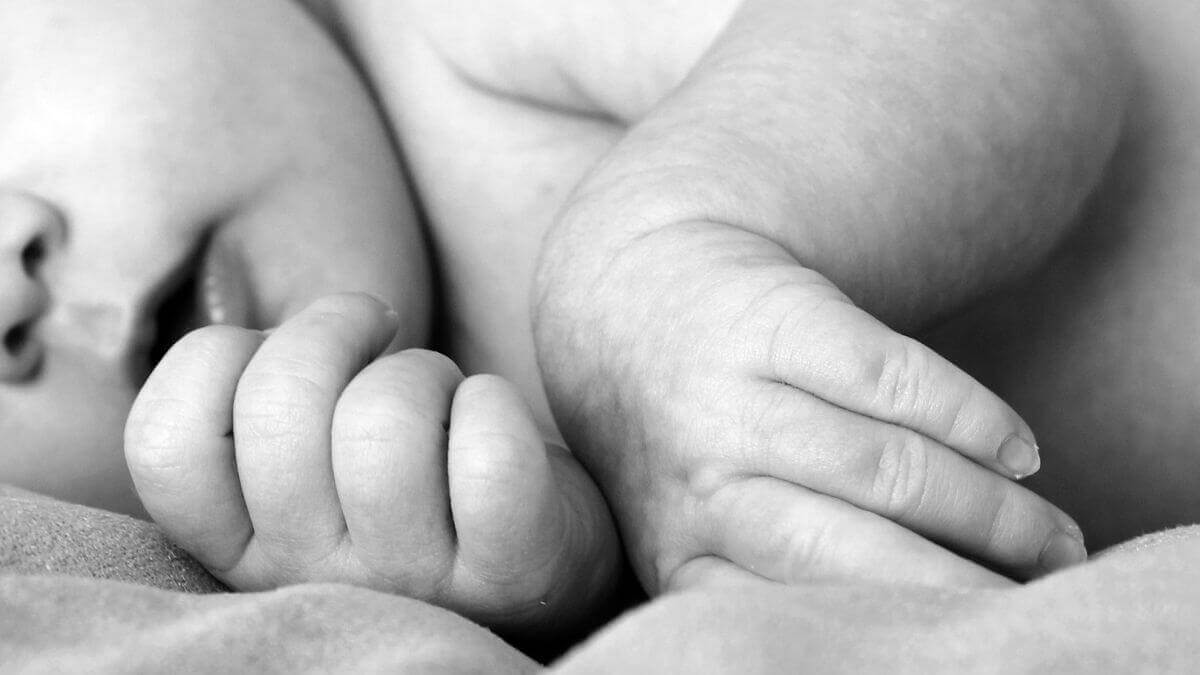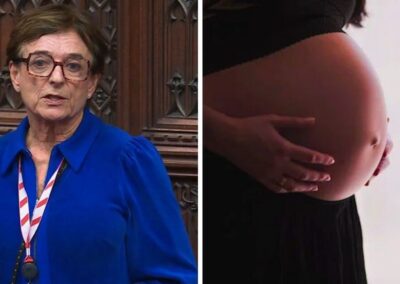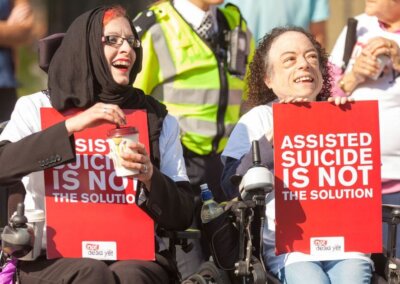Abortion numbers hit an all-time high of 200,608 abortions in 2018 for residents of England and Wales, according to the latest figures released by the Department for Health on 13th June 2019.
Total abortions numbers, including non-residents, hit a ten year high with 205,295 abortions in England and Wales in 2018, This represents an overall increase of 7,762 abortions from 2017.
In addition to this overall increase, the figures show a rise in the number of repeat abortions from 74,204 in 2017 to 78,998 in 2018. This means that in 2018, over 39% of all abortions were performed on women who had at least one abortion on a prior occasion.
111 “selective terminations” were performed in 2018, whereby if a woman is pregnant with multiple babies, usually twins or triplets, she can choose to undergo a ‘selective reduction abortion’.
Number of abortion for disability between 24 weeks and birth increased by 128% in ten years
The number of abortions for disability 24 weeks has increased by 128% since 2008 and campaign groups such as Don’t Screen Us Out – who have worked to highlight their concerns that new cf-DNA screening for Down’s syndrome would likely increase the rate at which children with Down’s Syndrome are aborted – have highlighted the 618 abortions for Down’s syndrome in 2018.
In the last 10 years, there has been a 42% increase in abortion for Down’s syndrome and a 64% increase in abortions after 24-weeks gestation for Down’s syndrome. Currently the law in England and Wales permits abortion up until birth if there is a diagnosis of disability, like Down’s syndrome, in the womb. The increase in abortions for Down’s syndrome is likely the result of new prenatal testing technology.
Lynn Murray, spokesperson for Don’t Screen Us Out who has a daughter with Down’s Syndrome said:
“It is deeply concerning that despite the leaps that advocacy groups have made in raising awareness in support of people with Down’s syndrome, abortion in the case of Down’s syndrome is still so commonplace and widespread in the UK… we hear from parents all the time how abortion was repeatedly presented to them in the hospital as an obvious solution following the receipt of the news that their baby had Down’s syndrome.”
Private abortion providers increase share of abortions
As the number of abortions overall have increased, so has the percentage of abortions performed by private abortion providers, who, in 2018, were responsible for 72% of all the abortions in England and Wales. Since 1999, there has been a 234% increase in the number of abortions performed by private providers.
This increase in private abortions comes at the same time as a recent report from the Care Quality Commission which accused Marie Stopes International of paying staff bonuses for encouraging women to undergo terminations.
At all 70 clinics, inspectors found evidence of a policy which saw staff using a high-pressure sales tactic, by calling women who had already decided against abortion to offer them another appointment.
Staff told CQC inspectors the Maidstone clinic was like a “cattle market” and described a “very target-driven culture”.
Spokesperson for Right to Life, Clare McCarthy said:
“Vulnerable women should not be seen as a revenue opportunity but sadly we know this is not the reality as abortion itself is a multi-million pound industry. Private abortion clinics have a vested monetary interest in increasing the numbers of abortions they perform every year.”
“It is a national tragedy that 205,295 lives were lost to abortion in 2018. This is the highest the abortion rate has been at in 10 years. Every one of these abortions represents a failure of our society to protect the lives of babies in the womb and a failure to offer full support to women with unplanned pregnancies.”
She also highlighted the majority of women in the UK who support a change in the abortion law saying “70% of women want the current time limit on abortion to be lowered and 91% of women want a ban on sex-selective abortion.”












